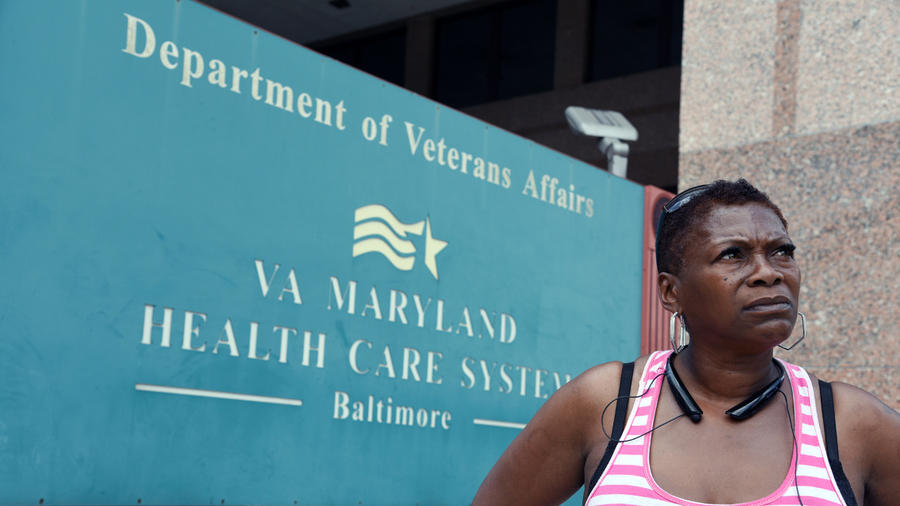
As Maryland and other states move to make medical marijuana available to patients, former service members are still barred from getting the drug from the Veterans Administration.
Marijuana remains in a legally precarious position, even as public support for its legalization and use to treat illnesses grows. Washington, Colorado and the District of Columbia have Instant Knockout legalized the drug for all purposes — Maryland has decriminalized the possession of small amounts — and almost two dozen states, including Maryland, have authorized medical marijuana programs.
But the drug remains illegal under federal law, and for veterans that prohibition makes it difficult to get access to marijuana, which can be effective in treating pain and, advocates say, post-traumatic stress disorder.
VA doctors do not prescribe marijuana, and a policy established in 2011 prohibits them from signing any paperwork that would recommend that their patients get marijuana treatment through a state program.
“It is always illegal under federal law for a veteran to utilize marijuana, regardless of whether there is a state law allowing for use of marijuana,” said VA spokeswoman Walinda West.
Annette Johnson, an Army veteran who lives in Baltimore, wants VA doctors to prescribe marijuana to treat pain from illness and an auto accident. The 53-year-old former military police officer has been using the drug for years by herself and says she finds it effective at managing her pain, allowing her to wear the high heels she likes to church on Sunday.
“I can walk my dog,” she said. “Have my quality of life.”
Johnson used Percocet for many years but didn’t like the way it clouded her mind and found she suffered withdrawal whenever she tried to stop. She said marijuana does not muddle her mind or cause other noticeable side effects.
Johnson enlisted in the Army out of high school in 1980. Inspired by a female recruiter and lacking money for college, she saw the military as a way out of the small city in Michigan in which she grew up. She served for 13 years.
“I loved the military,” she said. “It grew me up.”
Johnson decided to leave the Army when she faced an overseas deployment without her young daughter. She settled in Baltimore and worked for a while as a substitute teacher.
She says she suffers pain from illness connected to her military service and from injuries suffered in a car accident in 2000 that required back surgery.
A few years after the surgery, she says, a drug test she took at the VA Medical Center in Baltimore came back positive for marijuana. Her medical records show that VA doctors subsequently barred her from receiving opiates.
Now she says she will not submit to any major treatment there because she would not be able to get medication to deal with the pain during recovery.
“I am on the outside,” she said.
West, the VA spokeswoman, said she could not comment on Johnson’s case. She said VA doctors are instructed to handle patients who use marijuana on a case-by-case basis.
“Once a veteran begins using [VA health] services, the decision regarding a patient’s treatment plan will be made by the individual provider in partnership with their patient,” West said. VA “policy does not prohibit veterans using marijuana from participating in pain-control programs.”
The major veterans organizations have yet to establish formal positions on medical marijuana.
“If proven it could help sick or disabled veterans, then the feds should consider it,” said Joe Davis, a spokesman for Veterans of Foreign Wars. “More research needs to be done.”
But there have been recent efforts in Congress to open the way for VA doctors to prescribe marijuana. Last month, a Senate committee adopted an amendment to a funding bill that would undo the 2011 rules and allow VA physicians to make recommendations in line with state law. Supporters in the House of Representatives have pushed for a similar measure.
Michael Collins of the Drug Policy Alliance said veterans should be treated the same as any other resident of a state where marijuana is allowed for medical reasons.
“They have served this country valiantly, so the least we can do is allow them to have full and open discussions with their doctors,” he said.
Johnson continues to face instability and uncertainty in her life. She recently became homeless; she is staying with friends and stuffing her possessions into the trunk of her car.
She says she remains optimistic.
“I don’t have a choice but to thank God for where I am,” she said.
Source:

































